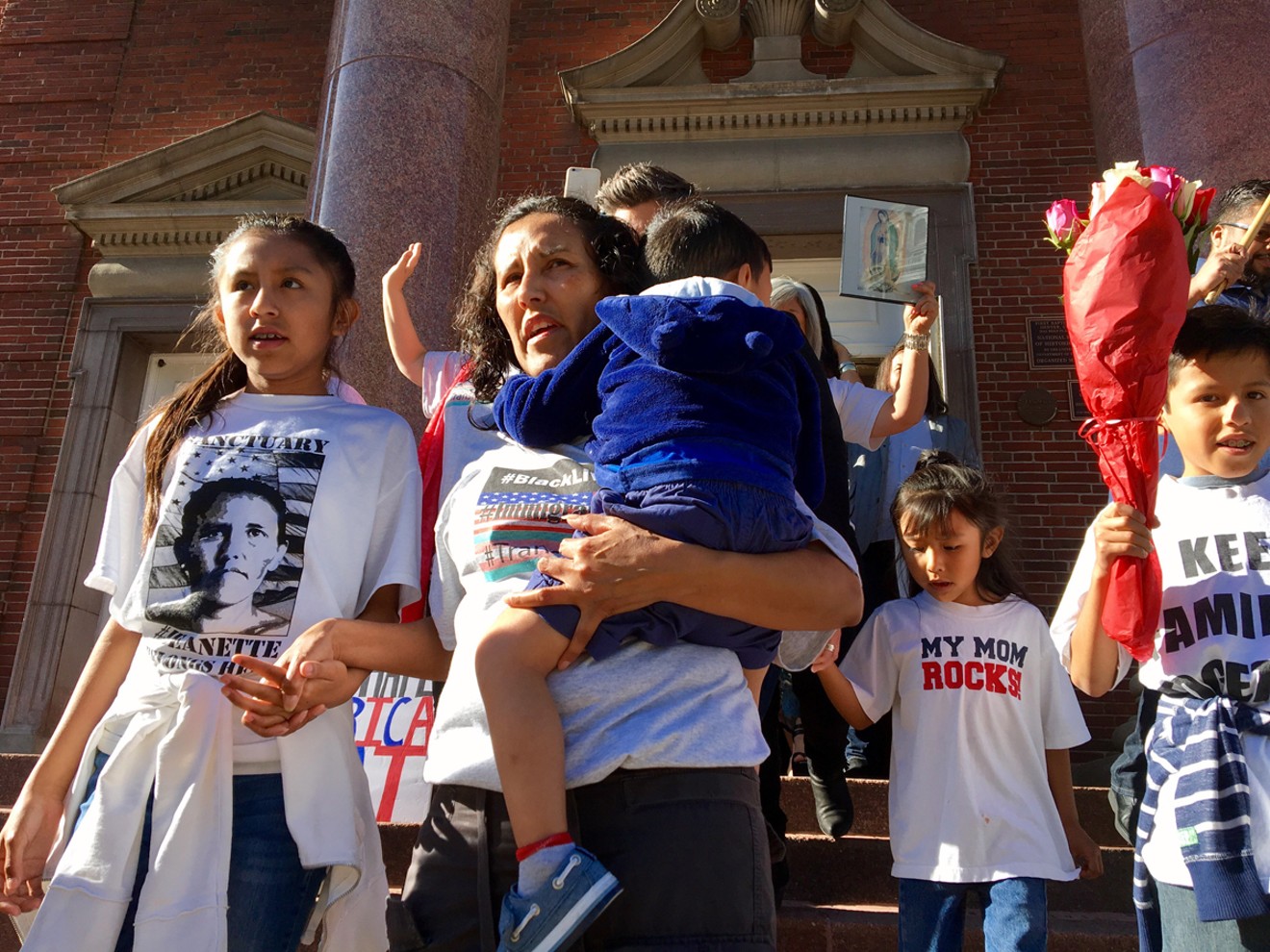Queen Phoenix, the MIA activist who burst on the Denver scene after the election of Donald Trump, then disappeared, was not the only protester to come to prominence last year. And unlike Phoenix, others stuck around.
If there was one Denver activist who was propelled into the spotlight to an almost surreal degree in 2017, it was Jeanette Vizguerra. A mother of four and longtime organizer who’s championed labor issues and immigrant rights, Vizguerra became the face of immigrant resistance against the Trump administration when she took up sanctuary in the basement of the First Unitarian Society in Capitol Hill in mid-February. Vizguerra, who is undocumented and originally from Mexico, became an international media sensation; in April, she was named one of TIME’s 100 most-influential people in the world. She was able to leave sanctuary on May 12, after special bills were introduced on her behalf in Washington, D.C., allowing her to continue fighting her deportation in immigration court and remain in the United States until at least 2019.
Vizguerra says she’s not slowing down anytime soon. The following interview was translated from Spanish:
Westword: What are you up to right now?
Jeanette Vizguerra: My work in the community has not stopped. In fact, I think I am more active now with all the attacks from the Trump administration towards the immigrant community — like removing the DACA program, which directly affects my family, since my daughter, Tania, is a DACA beneficiary. I have had to travel several times to Washington, D.C., to pressure legislators to stop negotiating with the lives of 800,000 young people when debating a budget for a useless border wall. I visited with 29 young people who are on a hunger strike in the nation’s capital. I also continue to do work around the sanctuary movement as the founder of Metro Denver Sanctuary Coalition. I am coordinating community organizing around the four current sanctuary cases in Colorado.
Do you have any specific activism planned for 2018?
In twenty years, my activism work has not stopped, and it is not going to stop now. Apparently, they want me to be one of the speakers for the local Women’s March [on January 20]. Since I am a feminist, I believe that women are prepared to lead, and I will continue to organize with different local and national groups that my MUJERR organization is affiliated with.
Why do you think that your time in sanctuary attracted so much international attention?
Unlike some other sanctuary-seekers, I have been fighting and working in the community for twenty years. And my case came at the precise moment that the Trump administration began its attacks on immigrant communities. To enter sanctuary was a challenge to the system, and it showed just how broken that system is. The cruelty of separating families — torturing innocent children by removing their parents — was a factor. But most important, I think it was because of my activism work and relationships with different communities.
Looking back, what was the experience of sanctuary like for you?
Despite all the pain and difficulty I experienced when sacrificing my liberty for 86 days, I would not change anything. I met incredible people. And there were true moments of unity, both in the form of community resistance and in coming together as a community of faith. Now I know who my real friends are.
Do you have advice for others who want to organize successful demonstrations?
The first thing they need is a conviction to fight. They need to be constant, honest and transparent with people — and know how to listen to others and consider their personal needs as well. Knowing how to delegate responsibilities and not wanting to take control of everything is also key to building good, organizational relationships.
[
{
"name": "Air - MediumRectangle - Inline Content - Mobile Display Size",
"component": "12017618",
"insertPoint": "2",
"requiredCountToDisplay": "2"
},{
"name": "Editor Picks",
"component": "17242653",
"insertPoint": "4",
"requiredCountToDisplay": "1"
},{
"name": "Inline Links",
"component": "18838239",
"insertPoint": "8th",
"startingPoint": 8,
"requiredCountToDisplay": "7",
"maxInsertions": 25
},{
"name": "Air - MediumRectangle - Combo - Inline Content",
"component": "17261320",
"insertPoint": "8th",
"startingPoint": 8,
"requiredCountToDisplay": "7",
"maxInsertions": 25
},{
"name": "Inline Links",
"component": "18838239",
"insertPoint": "8th",
"startingPoint": 12,
"requiredCountToDisplay": "11",
"maxInsertions": 25
},{
"name": "Air - Leaderboard Tower - Combo - Inline Content",
"component": "17261321",
"insertPoint": "8th",
"startingPoint": 12,
"requiredCountToDisplay": "11",
"maxInsertions": 25
}
]













